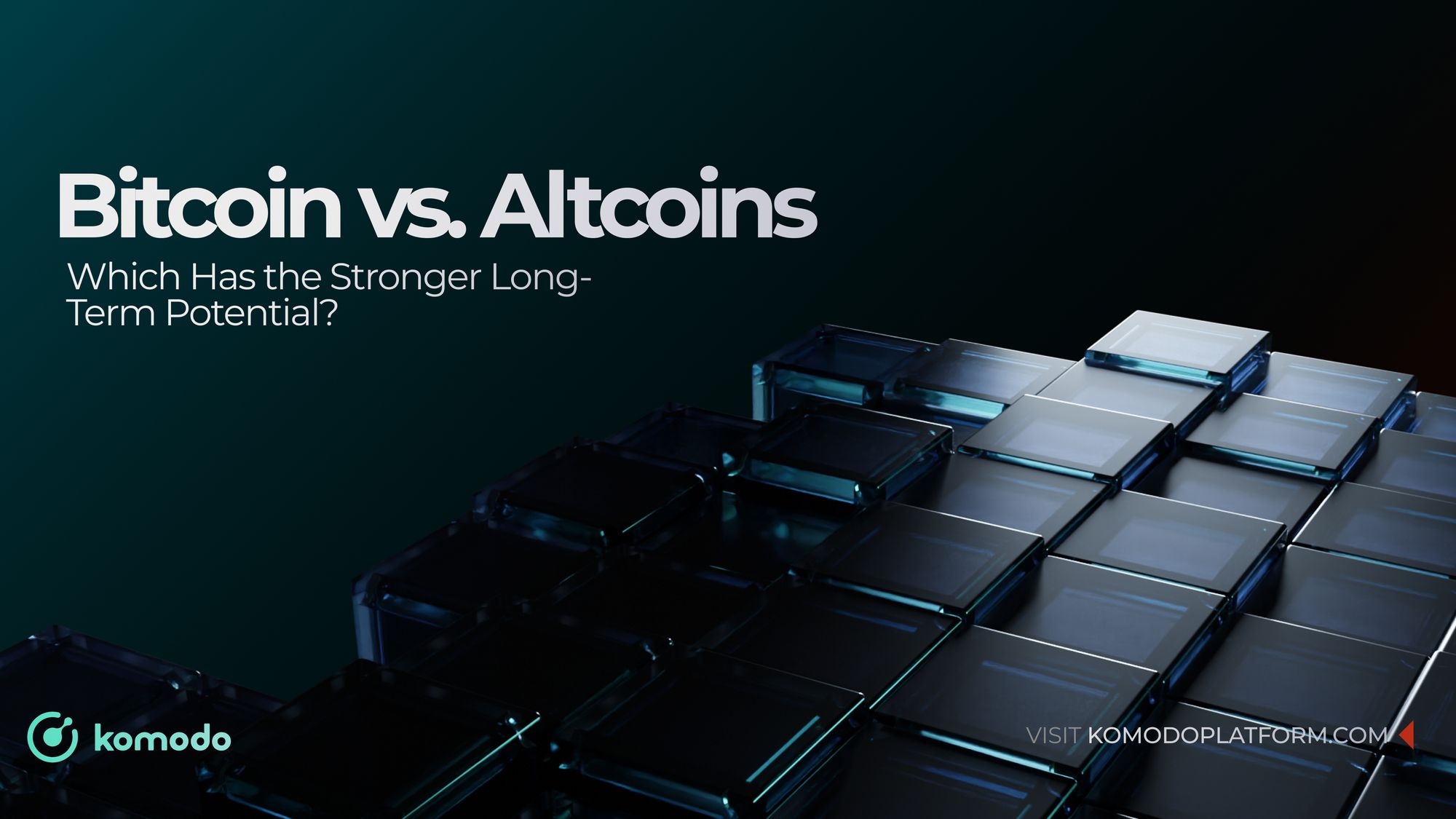
Cryptocurrencies have become one of the most exciting and unpredictable sectors in the global financial market. Bitcoin, being the first cryptocurrency, set the stage for a digital currency revolution. On the other hand, altcoins, or alternative cryptocurrencies, have emerged as strong competitors, offering innovative solutions and diverse applications. As an investor, understanding the Bitcoin vs altcoins debate is crucial for evaluating long-term potential.
This article explores the key factors that differentiate Bitcoin from altcoins and assesses which one may have stronger prospects for the future.
Bitcoin is the pioneer of cryptocurrencies, created in 2008 by the mysterious figure Satoshi Nakamoto. It operates on a simple and secure blockchain network, and its limited supply of 21 million coins makes it a scarce asset. Bitcoin has gained immense recognition and is often referred to as digital gold due to its role as a store of value.
Altcoins, which refer to all cryptocurrencies other than Bitcoin, include popular coins like Ethereum, Ripple, and Litecoin, as well as hundreds of others with unique features and use cases. These altcoins offer more flexibility and innovation compared to Bitcoin, with applications ranging from decentralized finance (DeFi) to supply chain management.
When comparing Bitcoin vs altcoins, it's important to consider several key factors that distinguish these two categories of cryptocurrencies. While Bitcoin remains the leader in terms of market capitalization and recognition, altcoins offer a diverse range of features and innovations that have the potential to disrupt various industries.
Technology and Innovation: Bitcoin’s Security vs. Altcoins’ Advanced Features
When comparing Bitcoin vs altcoins, one of the most significant differences lies in technology.
While Bitcoin focuses on being a secure store of value, altcoins push the boundaries with faster, more flexible blockchain technologies and innovative applications.
Bitcoin vs altcoins adoption is another important factor to consider.
The Bitcoin and altcoin difference in adoption is clear: Bitcoin leads in recognition and liquidity, but altcoins are catching up with unique and valuable applications.
When it comes to market capitalization, Bitcoin is still the dominant cryptocurrency. However, there are key differences in stability.
In the Bitcoin vs altcoins debate, Bitcoin’s stability gives it an edge, but altcoins might be more rewarding in terms of growth, though with increased risk.
Another key Bitcoin and altcoin difference is the pace of development.
While Bitcoin remains a stable and secure choice, altcoins are leading in innovation and rapid advancements.
Here’s a breakdown of the key strengths and risks of Bitcoin and altcoins, which helps to compare their long-term potential. The following table provides a clear side-by-side comparison of the advantages and challenges each face.
Aspect | Bitcoin | Altcoins |
Market Dominance | Dominates the market with the highest market cap. | Growing presence, but less market dominance than Bitcoin. |
Innovation | Focuses on security and stability with limited upgrades. | Rapid innovation, introducing smart contracts, DeFi, and faster systems. |
Adoption | Widespread adoption and recognition worldwide. | Increasing adoption in niche areas like DeFi, gaming, and logistics. |
Transaction Speed | Slower transaction speeds compared to newer altcoins. | Faster transaction speeds, suitable for everyday use. |
Volatility | Less volatile, but still subject to large price swings. | Highly volatile, with potential for higher gains and greater risk. |
Energy Efficiency | Criticized for energy usage due to Proof of Work mining. | Some use energy-efficient consensus like Proof of Stake. |
This table summarizes the critical factors in evaluating Bitcoin vs altcoins. Both have strengths that position them for future growth, but they also face unique challenges that investors should consider when making decisions.
Industry experts often have different views on Bitcoin vs altcoins, with some arguing that Bitcoin’s dominance makes it a safer bet for long-term investors, while others see altcoins as the future of blockchain technology due to their innovative capabilities.
Recent market trends suggest that while Bitcoin remains a trusted asset, altcoins are gaining momentum, especially with the rise of decentralized finance (DeFi) and blockchain applications. The growing interest in altcoins like Ethereum and Solana highlights the potential for these cryptocurrencies to offer unique advantages that Bitcoin cannot match.
When considering the Bitcoin vs altcoins debate, investors need to evaluate their risk tolerance and investment goals.
A diversified approach may be the best strategy, combining Bitcoin and altcoins to balance stability and growth potential.
When considering Bitcoin vs altcoins, Komodo offers a unique and promising approach for avid cryptocurrency users. With its decentralized exchange, interoperability, and focus on privacy, Komodo brings a new dimension to the blockchain world.
As the ecosystem continues to grow and innovate, Komodo stands out as a cryptocurrency that blends cutting-edge technology with practical applications. It’s a solid contender for those looking to diversify and position themselves for the future of blockchain.